Teaching Wound Care at AMDA/PALTC
I had the wonderful opportunity to teach practitioners from all over the country the art and science of wound care in nursing homes and long term care facilities. My talk was delivered at the AMDA/PALTC annual meeting in San Antonio, and it was great to catch up with friends and colleagues. This is an undertaught subject in medical training and there is a huge need for education on the topic.
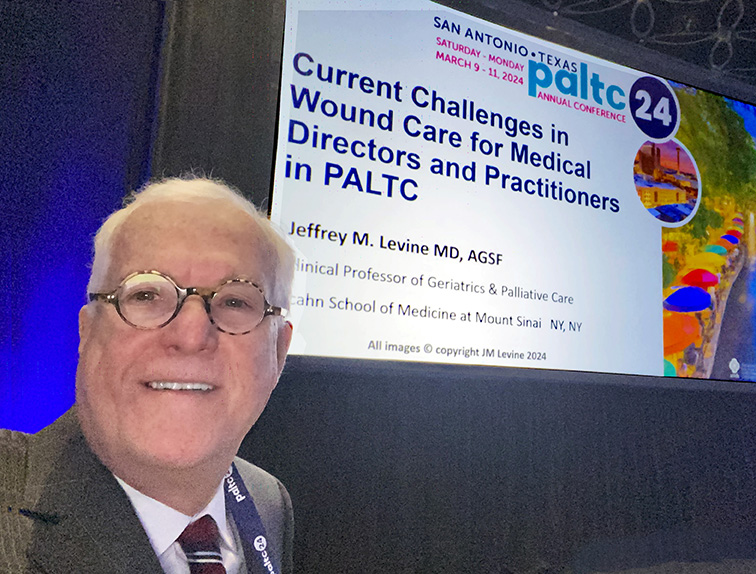
Academic Promotion at the Mount Sinai School of Medicine
I am delighted to announce my promotion to Clinical Professor of Geriatrics and Palliative Medicine at the Icahn School of Medicine at Mount Sinai. I am honored and grateful to be part of the Mount Sinai Health System – one of the largest academic medical systems in the New York metro area, with more than eight hospitals and a leading school of medicine and graduate education. Read more at this link.

New Textbook Chapter on Pressure Injury & Chronic Wounds
My chapter entitled Pressure Injury and Chronic Wounds was just published in a major new reference work. The textbook is entitled Geriatric Medicine: A Person Centered Evidence Based Approach and is available on Springerlink. My chapter is illustrated by photos taken over years in practice, and illustrations… Read more on my blog post here.
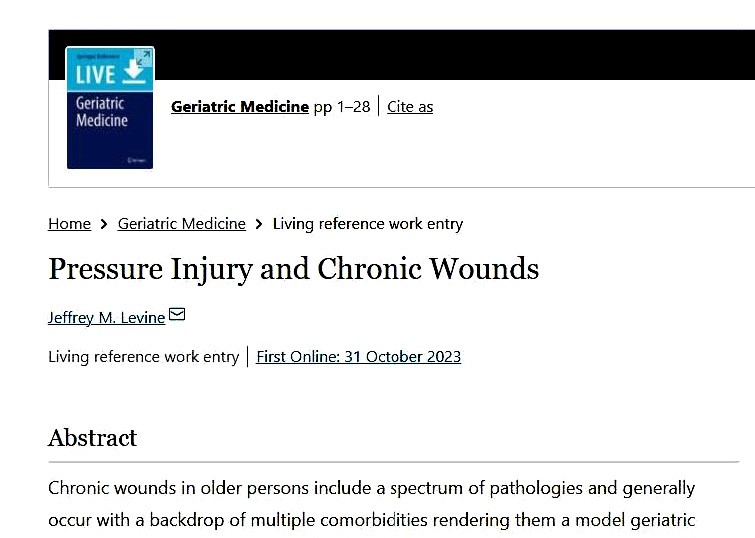
Malnutrition and Wound Healing
Proper wound healing is a complex process that involves various cellular and biochemical reactions. When the body is malnourished, it lacks the essential nutrients necessary for these processes, which can lead to delayed or impaired wound healing. Read more on my blog post here.
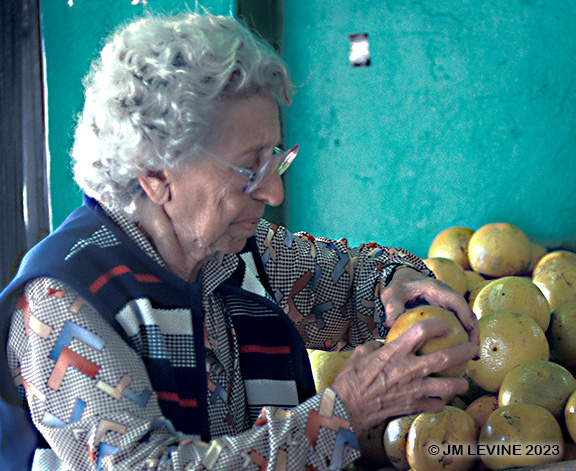
Skin Failure: Concept Review and Proposed Model
My new article entitled Skin Failure: Concept Review and Proposed Model is now available electronically ahead of print. The manuscript reviews the skin failure concept, defines related controversies, and proposes a model for its pathogenesis. Download the article here.
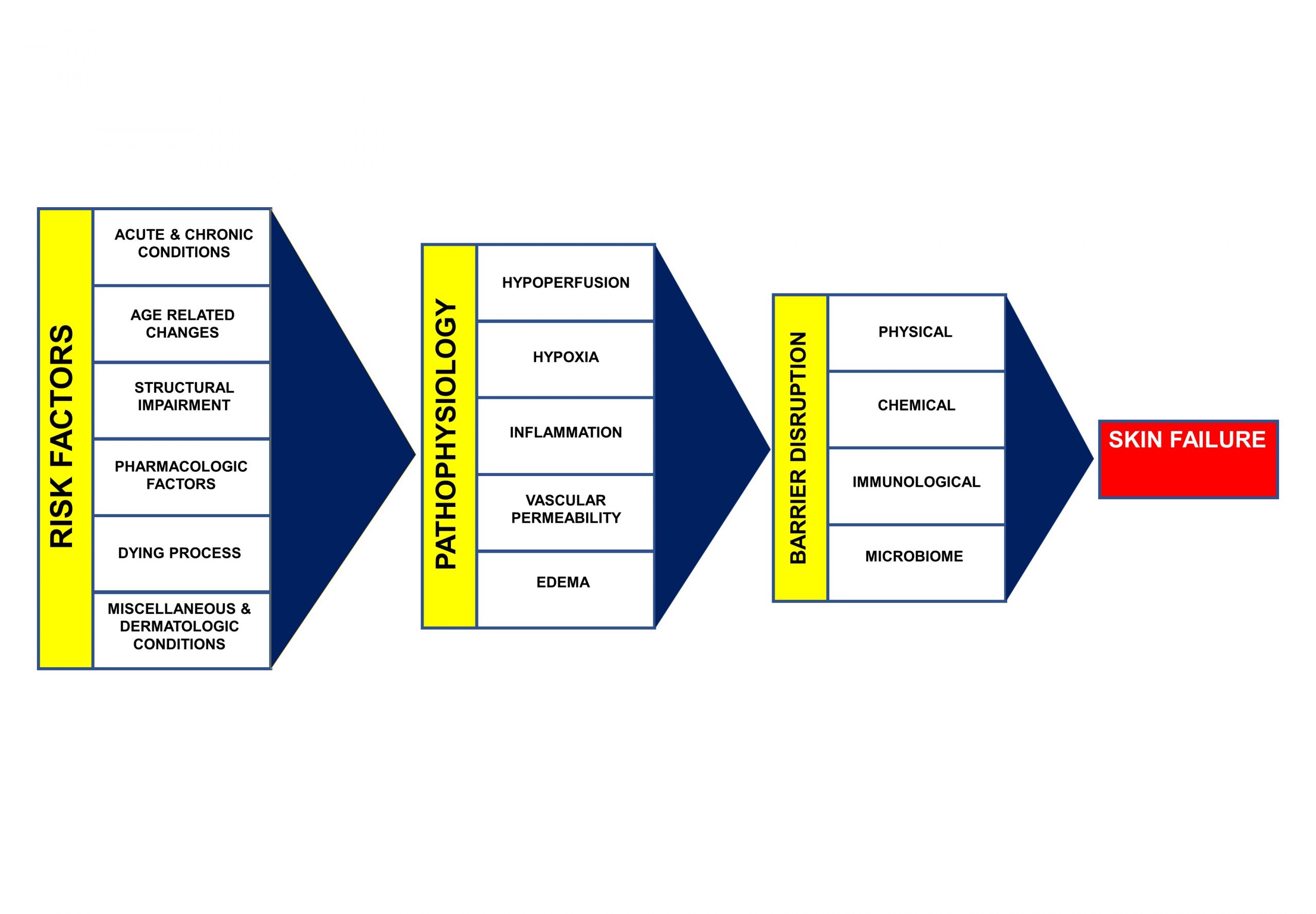
Geriatrics Review Syllabus
I had the privelige of authoring the 9th, 10th, 11th, and 12th Editions of the Pressure Injuries and Wound Care section of the Geriatrics Review Syllabus: A Core Curriculum in Geriatric Medicine. This is a comprehensive reference and the primary source for physicians preparing to take board examinations. Read more about the GRS here.
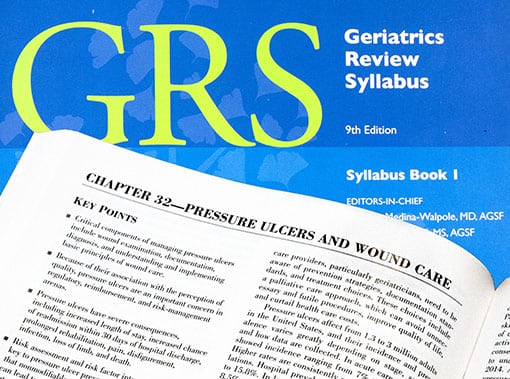
Featured Posts
Academic Promotion at the Mount Sinai School of Medicine
I am delighted to announce my promotion to Clinical Professor of Geriatrics and Palliative Medicine at the Icahn School of Medicine at Mount Sinai. Teaching medical students, residents, and fellows has been a passion, and over the years I had the honor and privilege of mentoring trainees through dozens of research projects related to wound care.
New Textbook Chapter on Pressure Injuries & Chronic Wounds
I am thrilled that my chapter entitled Pressure Injury and Chronic Wounds was just published in a major new reference work. The textbook is entitled Geriatric Medicine: A Person Centered Evidence Based Approach and is available on Springerlink. My chapter is illustrated by photos taken over years in practice, and illustrations that demonstrate pressure injury staging and aging skin.
Malnutrition Can Impact Wound Healing
To promote effective wound healing, it’s essential for individuals who are malnourished or at risk of malnutrition to address their nutritional deficiencies through dietary improvements or, in severe cases, medical interventions such as nutritional supplements, feeding tubes, or intravenous nutrition.
